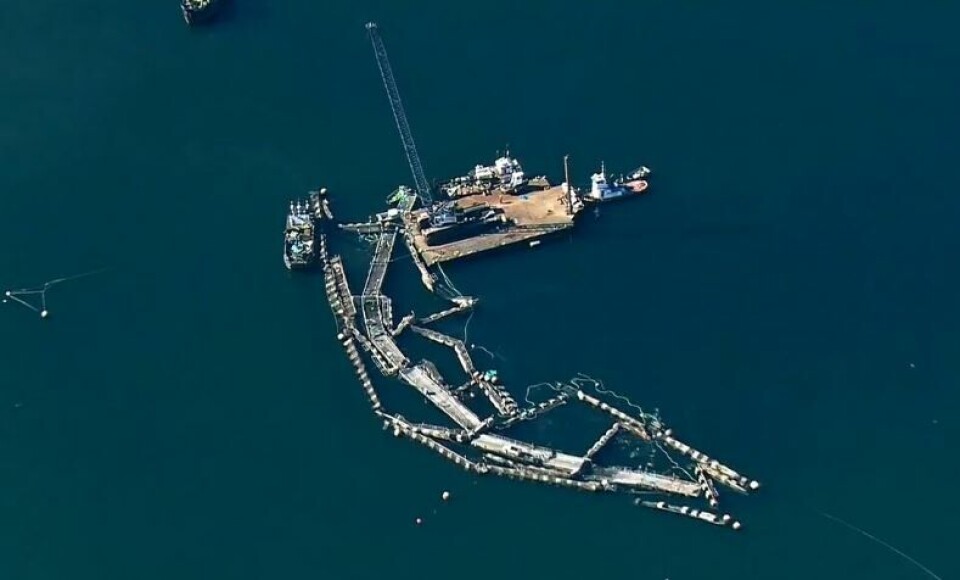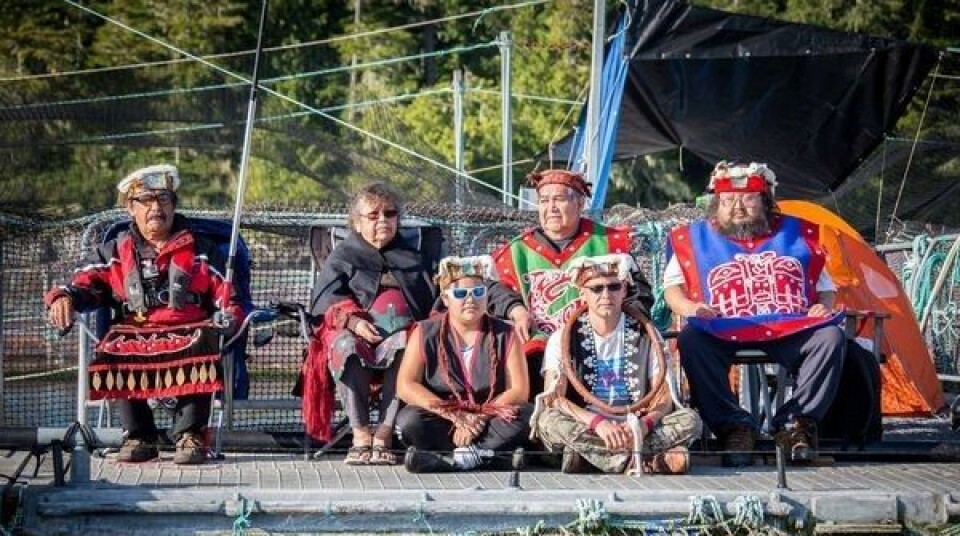
Cooke puts new farm on hold after escape
Cooke Aquaculture’s application to build a new marine salmon farm in Washington State on the western side of the United States has been put on hold following the mass escape at another of its farms in the area.
Local media reported that Cooke had asked for a September 7 hearing for a project permit to be postponed as it deals with the escape of thousands of fish at its Cypress Island facility. Washington governor Jay Inslee has already placed a moratorium on net pen permits until an investigation into the mishap is completed.
Pens holding about 305,000 Atlantic salmon failed just under a fortnight ago. The company has been vacuuming up fish that remain in its nets, with at least 141,546 captured, said Cooke spokesman Chuck Brown, earlier this week.
Inspections of structures
The native Lummi Nation has caught at least 20,000 Atlantic salmon in an emergency fishery sponsored by the tribe, which has promised to pay buyers to take the fish.
Sport fishermen have also hauled in a lot of the Atlantic salmon after Washington Department of Fish and Wildlife (DFW) said they could catch as many as they wanted. The Seattle Times even published tips on how best to catch escaped salmon.
Hilary Franz, commissioner of public lands for Washington’s Department of Natural Resources (DNR) - which leases public bed lands to Cooke for its fish-farm operations - is requiring inspections of all structures licensed to Cooke in Washington waters, with DNR personnel present during the inspections.
The escape, which Cooke initially blamed on unusually high tides caused by a solar eclipse, has caused alarm among native tribes in the US and across the border in Canada.
Online database
A map created by the DFW with the help of anglers who were invited to file reports to an online database of Atlantic salmon catches shows the escapees have spread across the international border to both sides of Vancouver Island, and Canadian First Nations leaders have requested a meeting with Inslee.
“Salmon don’t know any borders; they go with the tide. The international aspect of this is very real,” Bob Chamberlin, elected chief councillor of the Kwikwasut’inuxw Haxwa’mis First Nation and vice chairman of the Union of British Columbia Indian Chiefs told The Seattle Times. “Will they populate the rivers? That is the massive concern.”
Dominic LeBlanc, minister of Fisheries, Oceans and the Canadian Coast Guard, issued a statement saying “our government takes this incident very seriously given its proximity to Canadian waters.”
“We will be working to understand the potential impacts of this incident and prevent any damage to Canada’s marine ecosystems.”
Occupied farm
The incident comes as First Nation members have occupied the Marine Harvest Canada's Swanson Island fish farm near Alert Bay, British Columbia, for a week, vowing to remain until leases for the Broughton Archipelago are cancelled. They are accompanied by members of anti-fish farming pressure group, Sea Shepherd Conservation Society.

Ernest Alfred, a traditional leader for the Lawitsis, Mamalilikala and Namgis First Nations, is leading the occupation at the fish farm, and said the fish spill across the border hit home.
“This industry operates in both our waters and we share their frustrations. Washington state, although far from where I am standing now, I feel for the people there, I really feel the frustration and the concern. We stand in full solidarity with our brothers and sisters on the other side of the border.”
Alfred said he chose Swanson Island for the occupation in part because of its location. “This is the one farm that is in my family’s traditional home waters and it is really important that I defend them.”
A video on a Swanson Occupation Facebook site shows Alfred in conversation with a Canadian police officer, who said he and another officer visited because they wanted to make sure everyone was “getting along, essentially”. When asked how long they would be staying, one of the occupiers replies: “Until these farms are gone.”
The occupiers have now built a wooden shed for shelter on the farm gangway.






















































